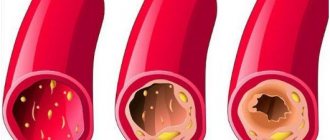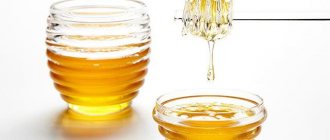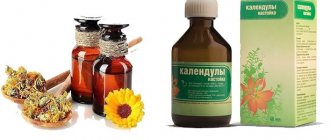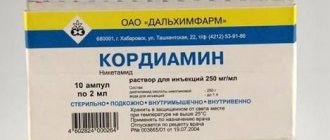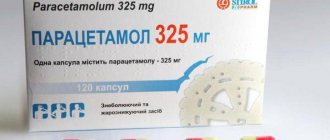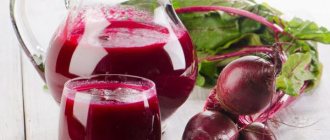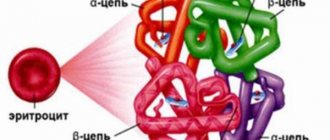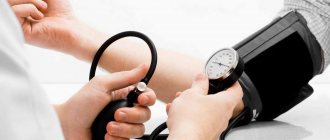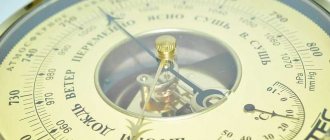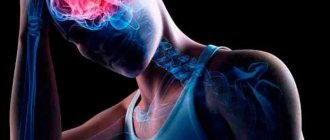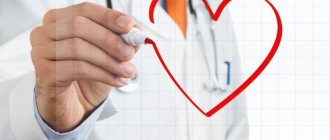Theory
A half-liter bottle of beer, depending on the strength, contains 20-40 grams of pure ethanol. Even this amount of alcohol is enough to slightly dilate blood vessels and lower blood pressure. As a rule, after 6-8 hours the indicator returns to its original value.
However, many beer lovers find it difficult to stop at just one bottle. The more alcohol enters the blood, the sharper the rise in pressure and the shorter the time interval between its decrease and subsequent increase. Moreover, in this case, the pressure rises above the initial level.
As long as the vessels are healthy, they can withstand such loads relatively easily. But weakened and covered with cholesterol plaques, the walls of blood vessels lose their elasticity and can rupture. Excessive beer consumption with high blood pressure often leads to stroke.
Beer cannot stabilize blood pressure
The body's reaction to alcohol is individual. For example, there are people whose blood pressure does not change at all even after drinking several glasses of beer. For others, the changes are more pronounced. But in any case, this drink should not be taken as a medicine to increase or decrease blood pressure. In case of any deviations from the norm, you must consult a doctor and strictly follow his recommendations.
Hypotension and beer
When treating hypotension with medications, it is strictly forbidden to drink an intoxicating drink, because it neutralizes the effect of the pills and increases the negative effect on the body.
Low blood pressure often appears due to gastrointestinal diseases, in the form of gastritis or ulcers, as well as in the presence of endocrine system failures. In this case, alcohol in any form is strictly contraindicated, even in the smallest dose.
Excessive consumption of beer during hypotension leads to the development of a micro-stroke. Often, a decrease in indicators occurs with heavy and regular exercise and dietary nutrition.
Is it possible to drink beer with high blood pressure?
It would seem that if beer in moderate doses reduces blood pressure, then it is even beneficial for hypertensive patients. However, not all so simple.
For people with high blood pressure, doctors usually prescribe medications to keep it within normal limits. If the tablets are enclosed in a special shell, it means that they are designed for gradual absorption. Alcohol dissolves the tablet shell, and the drugs are absorbed into the blood much faster. Instead of a therapeutic effect, a sharp intoxication of the body occurs, and the side effects of the drug significantly increase.
Beer combined with medications to lower blood pressure can cause dizziness, nausea, loss of consciousness and even a stroke. Therefore, those who constantly take antihypertensive drugs will have to give up beer altogether, even non-alcoholic beer (it also contains small amounts of ethyl alcohol).
But even if a hypertensive patient does not take medications, he should treat beer with extreme caution. When drinking this drink, you need to consider that:
- beer causes appetite, and overeating leads to obesity;
- almost all products that are customary to snack on beer: dried or smoked fish, crackers, chips, nuts, smoked cheese, salted or pickled vegetables contain a lot of salt, which increases blood pressure;
- It is especially dangerous to drink beer in the heat, when the risk of a hypertensive attack is already high.
Consequences of alcohol abuse
The more beer a person drinks, the more ethanol enters the blood and the more rapidly the blood pressure rises. Accordingly, the interval between the decrease and the next jump is gradually becoming smaller.
Alcohol abuse has a harmful effect on the functioning of the heart and blood vessels:
- The heart rate increases.
- The heart increases in size.
- Myocardial elasticity decreases.
- Intracranial pressure increases.
- The functioning of other internal organs decreases.
Patients with high blood pressure during VSD should be especially extremely careful. Patients with this disease find it difficult to tolerate even a small dose of an alcohol-containing product, which can lead to a sharp increase in blood pressure, increased heart rate, tachycardia, shortness of breath, etc.
Doctors remind that the main danger of excessive beer consumption is alcohol addiction, which has an extremely negative effect on the human body and leads to irreversible consequences. The following dangers await the body:
- Ischemia.
- Varicose veins
- Obesity.
- Cardiac disorders.
- Diabetes.
- Breast cancer in women.
- Decreased potency in men.
- Avitaminosis.
- Swelling of the lower extremities.
- Destruction of the brain at the cellular level.
- Hormonal imbalance.
- Problems with the pancreas.
Separately, it is worth noting the negative impact of excessive beer consumption on the kidneys, which are responsible for the timely removal of fluid from the body. When they work correctly, it is promptly removed, but if renal function is impaired, fluid begins to accumulate in the body, which provokes an increase in blood pressure. To some extent, beer has a diuretic effect, but it does not have a very positive effect on the paired organ, contributing to their premature wear.
For hypertension, diuretics are often prescribed to stabilize water balance, which helps normalize high blood pressure. However, beer has a similar effect, but it contains ethanol, so patients with the second and third stages of hypertension should be extremely careful with this drink.
Is it possible to drink beer with low blood pressure?
Taking medications intended to normalize blood pressure in case of hypotension should in no case be combined with drinking regular or non-alcoholic beer: just as with hypertension, alcohol neutralizes the therapeutic effect, but increases side effects.
In addition, low blood pressure can be a consequence of stomach ulcers, gastritis, and various diseases of the endocrine system. For people with such diagnoses, alcohol is contraindicated even in small doses.
Pressure surges due to drinking large doses of beer are also dangerous for hypotensive patients. Abuse of this drink can lead to a mini-stroke.
Often, low blood pressure is the result of diets and exercise aimed at losing weight. Beer at low blood pressure has a positive effect on hemoglobin levels, relieves fatigue and the effects of stress. But you need to be prepared for the fact that the drink causes appetite, and all your multi-day efforts aimed at losing weight can go down the drain because of a few glasses of beer.
Properties of beer
Beer is a low-alcohol drink; it contains only 6% alcohol and a small amount of calories, which are even lower than wine. When preparing the drink, water, malt and hops are used. Also contains:
- Ethanol.
- Substances containing nitrogen.
- Carbohydrates.
- B vitamins, which can have a positive effect on the tissues of the vascular system, making them stronger and more elastic.
Although the composition is natural and may even seem useful, beer cannot be used to normalize blood pressure.
If your head starts to hurt after drinking beer, this is not a symptom of high or low blood pressure. This condition most often appears as a result of intoxication; before lowering the pressure, it is necessary to measure the indicators.
It has been proven for many years how beer affects blood pressure. If you drink it often and in large quantities, then the indicators will increase; if you drink 300-500 ml of a light (light) drink, then the indicators will decrease due to vasodilation.
Fans of this product often have high blood pressure, since they consume it often and in unlimited quantities. If a person has a low level, then after 2 bottles the values increase.
conclusions
Even absolutely healthy people should not abuse beer. If your blood pressure is high or low, you should follow these rules:
- Under no circumstances should you drink beer on the day of taking any medications, and ideally for at least two days after it (unless the instructions for the medications indicate a longer period);
- do not quench your thirst with beer in the heat;
- You should not drink beer if you are feeling unwell, as this can provoke an attack;
- The best “beer” time is evening. You should not drink beer at lunch if there is physical labor in the afternoon (for example, working in a garden plot);
- preference should be given to “live” beer. It contains B vitamins, which strengthen the walls of blood vessels (500 g of drink contains 16% of the daily value of vitamin B6);
- for hypertensive patients, non-alcoholic beer is much safer than regular beer;
- If you have high blood pressure, it is not recommended to eat smoked beer. Lightly salted cheeses, unsalted nuts, and vegetable salads are best suited as a snack. At low pressure there are no such restrictions;
- with high blood pressure, the permissible dose of the drink is 1-2 mugs no more than twice a week. This also applies to non-alcoholic beer;
- If a person feels unwell after drinking beer, he should immediately seek help.
Attention! Self-medication can be harmful to health. Consult your doctor.
Your mark:
Hypertension and beer
There is an opinion that with high blood pressure, beer in small quantities can be used for hypertension.
But this is not so, everything is much more complicated. As a rule, for hypertension, the doctor prescribes medications to patients that can keep the blood pressure normal and reduce it if necessary. If the tablet is coated, then it is intended for long-term action and cumulative effect. When consuming alcohol, even beer, this shell dissolves, and the medications work many times faster and quickly penetrate the blood. Due to this, the hypertensive patient does not receive a therapeutic effect, but rapid poisoning of the body occurs and more side effects appear in a pronounced form. Beer and antihypertensive drugs can cause the following symptoms:
- Nausea.
- Dizziness.
- Fainting.
- In advanced cases, strokes.
If drug treatment is prescribed, then even weak alcohol must be completely abandoned. In this case, you cannot even use non-alcoholic beers, because they also contain some ethyl alcohol
Even if medications are not used for hypertension, beer should be taken very carefully. The following factors should be considered:
- After beer, appetite increases. With constant food consumption, a strong increase in body weight is possible, and with obesity, the likelihood of developing hypertension increases several times.
- Almost all products that are used for intoxicating drinks contain a lot of salt and preservatives, which is not only negative for overall health, but also affects hypertension only for the worse.
- It is very dangerous to take the drink described in the summer during the heat, since the pulse and pressure rise sharply, possibly developing a crisis.
Knowing how a drink can appear in case of hypertension, it is worth considering whether it is necessary to use it or whether it is better to maintain health by taking juices and other healthy remedies.
Is there any harm possible?
Although an intoxicating drink can be useful in rare cases and is not very strong alcohol, it contains alcohol, which is often not completely purified, as a result of which people become severely poisoned, and the condition can worsen. There are other harms that the foam product causes:
If abused, the functioning of the liver is disrupted, and tissues can gradually be destroyed. If you do not take the product constantly, cirrhosis develops.
- Failures of the internal organs of the gastrointestinal tract occur, after which there may be problems in the form of gastritis and ulcers.
- The functioning of the heart is disrupted, it gradually increases in size, tone disappears, and fatty deposits appear on it. In this case, the likelihood of stroke, heart attack and tachycardia increases several times.
- When drinking beer on hot days, the kidneys work harder. The organ cannot completely remove toxins, and harmful substances accumulate, kidney function disappears.
The main danger is addiction, which immediately affects all organs and systems. When abused, irreversible changes begin. Even with ideal health, frequent consumption of a foamy drink begins to develop chronic diseases.
